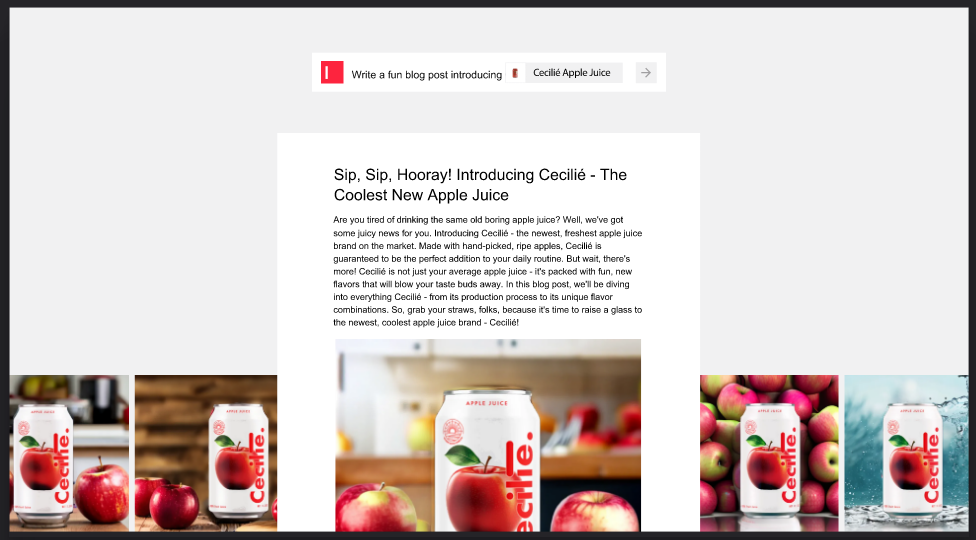Typeface, a startup developing an AI-powered dashboard for drafting marketing copy and images, emerged from stealth this week with $65 million in venture equity backing from Lightspeed Venture Partners, GV (Google Ventures), M12 (Microsoft’s Venture Fund) and Menlo Ventures.
Founded by former Adobe CTO Abhay Parasnis, Typeface attempts to combine generative AI with a brand’s tone, audiences and workflows to — as Parasnis rather aspirationally puts it — “reimagine” content workflows and corporate content development.
“We provide a generative AI application that empowers businesses to develop personalized content,” Parasnis said. “CEOs, CMOs, heads of digital, and VPs and directors of creative are all expressing a growing demand for combining generative AI platforms with hyper-affinitized AI content to enhance the future of content workflows.”
Using Typeface, customers can type in a command like “Write a fun blog post about apple juice” to have the platform execute it, writing a several-paragraph draft piece complete with images. The tone of any images and copy can be customized to target certain demographics, or to align with a brand’s style guidelines.
Certainly, there’s a strong desire among the enterprise to leverage generative AI for advertising use cases.
Over the past few months, agencies contracted by Heinz, Nestlé, Bacardi-owned Martini & Rossi and Patrón have launched ad campaigns using imagery created by text-to-image systems such as OpenAI’s DALL-E 2 and Midjourney. Just last week, Coca-Cola inked a deal with OpenAI to leverage the company’s text-writing ChatGPT and DALL-E 2 to craft ad copy, images and personalized messaging.

Image Credits: Typeface
The rise of generative AI startups focused on marketing and advertising applications is a hot topic, with new players like Movio, Copysmith, Copy.ai, Sellscale, Jasper, Omneky and Regie.ai emerging as contenders. These startups aim to harness the power of AI to create superior marketing copy, imagery, and even video for ads, emails, and websites.
The market uptake has been impressive, with 87% of current AI adopters already using, or considering using, AI to improve their email marketing, according to Statista. And projections suggest that the generative AI market could be worth over $110 billion by 2030.
However, with increasing competition in the field, it’s unclear which startups will emerge as market leaders. Despite this, Abhay Parasnis, founder of Typeface, remains optimistic about his platform’s chances. He attributes this to its safety and governance capabilities, as well as its ability to integrate “brand-specific” visual assets.
Safety is a major concern for brands when it comes to generative AI, as even the best text and image-generating AI can sometimes produce inaccurate or even toxic content. Typeface is not the only platform attempting to address these issues, but it does have some traction with clients in marketing, advertising, sales, HR, and customer support. Sequoia Benefits Group is one such client, using Typeface to generate copy and imagery for their marketing and HR teams.
“As we emerge from stealth, we are excited to see strong early interest and engagement from a diverse range of mid-large enterprises,” Parasnis continued. “This level of customer response underscores the rapid market growth and highlights the appeal of our unique enterprise-minded vision for micro-personalized, secure content for teams.”
